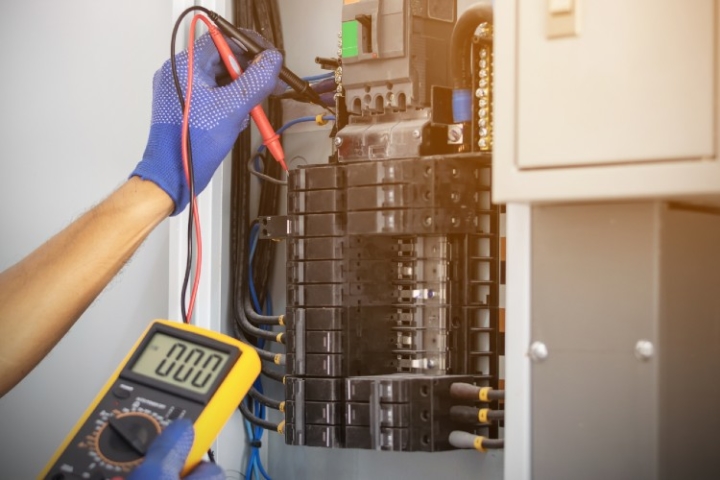
Whether you’re selling your home, buying a new one, renovating, or installing high-powered devices like EV chargers or solar panels, a home electrical inspection is often required. These inspections ensure that your home’s wiring, outlets, panel, and grounding systems are safe and code-compliant.
Preparing your home for an electrical inspection may feel overwhelming, especially if you live in an older property. However, with the help of a licensed electrician-cedar-park, you can navigate the process confidently, pass your inspection, and ensure your electrical system is safe for years to come.
What Is a Home Electrical Inspection?
An electrical inspection is a thorough evaluation of your home’s electrical system by a licensed professional or city inspector. It typically includes checks for:
- Circuit breaker panel condition and capacity
- Wiring safety and grounding
- Proper installation of outlets, switches, and fixtures
- Functionality of smoke and carbon monoxide detectors
- GFCI protection in wet areas
- Code compliance with the latest local and national standards
Inspections may be required during:
- Real estate transactions
- Home renovations or additions
- Electrical panel upgrades
- Insurance applications
- Installation of major appliances or systems
Why Inspections Matter
Electrical systems are one of the leading causes of residential fires in the U.S. An outdated or damaged electrical setup isn’t just inefficient—it can be dangerous.
Benefits of an inspection include:
- Early problem detection – Catch issues before they become costly or hazardous
- Improved safety – Reduce the risk of fire, electrocution, or appliance failure
- Code compliance – Avoid fines or delays during property sales
- Peace of mind – Know your home is safe for your family and guests
If your system is over 20 years old or hasn’t been checked recently, it’s time for an assessment by a qualified Cedar park electrician.
Common Reasons Homes Fail Electrical Inspections
Many homeowners are surprised to find out that their electrical systems don’t meet current codes—especially in homes built before 2000. Some of the most common reasons for failed inspections include:
- Improperly wired outlets or light switches
- Missing or non-functional GFCI protection
- Exposed wiring or damaged conduit
- Double-tapped circuit breakers
- Outdated fuse boxes or overloaded panels
- Ungrounded two-prong outlets
- Lack of arc-fault circuit interrupters (AFCIs) in sleeping areas
Most of these issues can be corrected quickly and affordably by a licensed electrician. Being proactive can save you time, money, and stress.
How to Prepare Your Home for an Electrical Inspection
Preparation is key. Follow these steps to make sure your home is ready when the inspector arrives:
1. Schedule a Pre-Inspection Assessment
Before the official inspection, hire a licensed electrician-cedar-park to conduct a full system evaluation. They can identify potential problem areas, correct outdated components, and make sure everything meets current code requirements.
This step is especially important if:
- You’re selling your home and want to avoid surprises
- You’ve done DIY electrical work in the past
- You’ve lived in the home for many years without electrical upgrades
2. Clear Access to Key Areas
Inspectors and electricians need access to:
- The electrical panel
- Attics, basements, or crawlspaces with wiring
- Outlets and switches in all rooms
- GFCI locations (kitchens, bathrooms, laundry, garage, outdoor areas)
Move any furniture, storage, or obstructions before the inspection date to avoid delays.
3. Label Your Electrical Panel
A well-labeled breaker panel speeds up the inspection and prevents confusion. Each breaker should be clearly marked with the room or appliance it controls. This is a simple fix that shows preparedness and may prevent a failed inspection.
4. Test GFCI and AFCI Outlets
Use the “test” and “reset” buttons on each GFCI outlet to ensure they are working properly. Do the same for arc-fault circuit interrupter breakers (AFCIs) on your panel, if present.
If an outlet does not trip as expected, it may be defective or incorrectly wired and should be replaced before the inspection.
5. Ensure Proper Grounding
Your home’s outlets and circuits should all be properly grounded. Ungrounded systems can create shock risks and are one of the most common reasons for inspection failures.
A Cedar Park electrician can test your grounding and upgrade outlets if necessary—especially if your home still has two-prong receptacles.
6. Update Smoke and CO Detectors
Modern electrical codes require working smoke detectors in all bedrooms, hallways, and living areas, plus at least one carbon monoxide detector if your home uses gas. These should be hardwired with battery backup.
Check the date on each unit (usually located on the back). Replace any units older than 10 years.
7. Replace Damaged Fixtures or Outlets
Cracked switch plates, scorched outlets, or light fixtures that flicker or buzz should be replaced before inspection. Small repairs like these show attention to detail and can make a big difference during an evaluation.
What Happens During the Inspection?
During an official electrical inspection, the inspector will:
- Open and inspect the electrical panel
- Check wiring for safety and code compliance
- Test outlet polarity and grounding
- Inspect GFCI and AFCI protection
- Verify that all light fixtures are securely mounted
- Review permits and documentation (if applicable)
Inspections typically last 1–2 hours, depending on the size and condition of your home. You may be present, but it’s often easier to have your electrician handle the process on your behalf.
What If You Fail the Inspection?
Failing an inspection isn’t the end of the world—it simply means corrections are needed. Your electrician will receive a report identifying the issues. Once repairs are made, a follow-up inspection can be scheduled.
Common post-failure upgrades include:
- Panel repairs or replacement
- Outlet rewiring
- Adding GFCI or AFCI protection
- Correcting double-tapped breakers
- Replacing damaged or exposed wiring
The sooner you address the problems, the sooner your home will be code-compliant and safe.
Why Work with a Local Cedar Park Electrician?
Electrical codes can vary between cities, and inspectors in Cedar Park have specific expectations. Hiring a local expert means:
- Familiarity with Cedar Park’s permit process
- Faster response times for re-inspections or repairs
- Knowledge of current regional codes and standards
- A reputation built on serving the local community
A trusted local professional ensures your inspection goes smoothly, avoids unnecessary delays, and delivers long-term safety and reliability.
Final Thoughts
Electrical inspections are a vital part of maintaining a safe, efficient, and legally compliant home. Whether you’re preparing to sell, renovate, or simply upgrade your system, the right preparation can make all the difference.Don’t wait until problems arise. Schedule an evaluation with a licensed electrician Cedar Park and make sure your home passes inspection the first time—saving you money, time, and stress.




More Stories
Understanding Construction Loans for Your Dream Home
Pool Fence Installers in Ocala Chain Link and Farm Fence Experts in Florida
Chain Link Fence Ocala FL: A Practical and Dependable Choice